Stomach Acting Up Again? You’re Not Alone.

Herbal remedies for digestion have been used for centuries to ease bloating, soothe reflux, and bring relief when your gut feels out of balance. We’ve all been there. That uncomfortable fullness after a rich dinner, the burning reflux creeping up your throat, or the bloat that makes your jeans feel like they shrank in the wash. You know what? It’s not just you. Digestive problems are among the most common complaints people bring up with doctors, nutritionists, even coworkers over coffee.
Popping a pill can bring relief, but let’s be honest—it often acts like a patch rather than a fix. That’s why so many are leaning toward herbal remedies for digestion. Herbs work differently. Instead of bulldozing symptoms, they gently encourage your gut to function the way it’s meant to. And here’s the fun part: some herbs become even more powerful when paired.
Think of it like a duet. Ginger stimulates; peppermint relaxes. Turmeric fights inflammation; black pepper makes sure your body actually absorbs it. These aren’t just herbs that improve digestion—they’re teamwork in plant form.
Of course, natural doesn’t mean risk-free. Herb medication interactions are real, and mixing the wrong things can backfire. That’s where tools like an herb drug interaction checker (Medscape and RxList have solid ones) and a quick chat with your healthcare provider come in.
So, should you care? If you’ve ever wished your stomach would just stop throwing curveballs, the answer is a solid yes.
Why Gut Health Is About More Than Digestion

Here’s something people don’t talk about enough: your gut isn’t just about food. It’s like mission control for your whole body. Roughly 70% of your immune system sits in your gut. It affects energy, mood, and even skin health. Ever noticed how stress gives you stomach cramps or how antibiotics sometimes cause breakouts? That’s the gut-body connection.
And then there’s the gut-brain axis. Butterflies before a first date, nausea when you’re anxious—your gut literally feels your emotions. That’s why researchers call it your “second brain.” No wonder digestive issues ripple into fatigue, cranky moods, or trouble focusing.
Supporting your gut with herbs for gut health doesn’t just help your belly. It’s like tuning an instrument so the whole orchestra sounds better. Herbal remedies for digestion give your body a nudge back toward harmony, instead of blasting it with quick fixes.
The Herbal Combos Worth Knowing
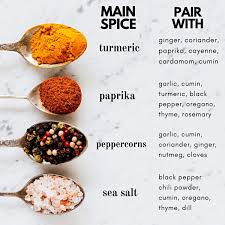
Now, let’s walk through the real stars—the combos that have been used for centuries across cultures and are still making waves today.
Ginger + Peppermint: Fire Meets Ice
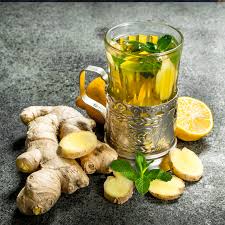
Imagine this: it’s the holiday season, you’ve had one too many helpings of pie, and your stomach feels like a lead balloon. Sarah, a teacher I worked with, swore by her ginger-peppermint tea ritual. “It’s like my stomach sighs in relief,” she said.
Ginger heats things up—stimulating enzymes, speeding gastric emptying. Peppermint cools things down—relaxing spasms, easing cramps, making gas pass less painfully. Together, they’re like alternating hot and cold therapy for your insides.
As herbal teas for digestion, they’re easy, comforting, and surprisingly effective. Studies even back peppermint oil for IBS, showing tradition and science shaking hands. No wonder this pair is one of the most reliable herbs that improve digestion.
Fennel + Chamomile: The Gentle Negotiators
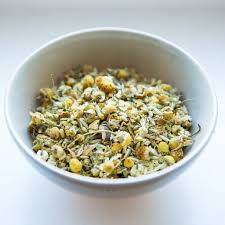
Walk into an Indian home after dinner and you might see a bowl of fennel seeds. People chew them to freshen breath and ease bloating—it’s tradition backed by experience. Chamomile, meanwhile, is everyone’s go-to bedtime tea, but it also calms gut spasms and tension.
Together, fennel and chamomile are like the diplomats of digestion—quietly effective, never aggressive. If your stomach is sensitive or stress makes symptoms worse, this duo works wonders. Many families pass down fennel-chamomile blends as natural remedies for bloating—and modern herbalists still recommend them as gentle herbal supplements for gut health.
Turmeric + Black Pepper: The Golden Duo
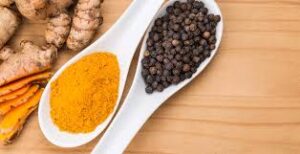
Turmeric is everywhere—lattes, face masks, Instagram reels. Its curcumin compound is anti-inflammatory, soothing irritated gut lining. But here’s the catch: curcumin on its own barely makes it into your bloodstream. Black pepper changes that by boosting absorption up to 2,000%.
That’s why this pairing shows up in nearly every serious supplement for inflammation or gut support. Without pepper, turmeric’s like a rockstar without a mic. With pepper, the crowd hears every note.
This duo doesn’t just sit pretty in capsules. Stir them into curries, golden milk, or even scrambled eggs. It’s an easy way to turn your spice rack into a set of herbal remedies for digestion and long-term gut support.
Licorice Root + Slippery Elm: The Soothers
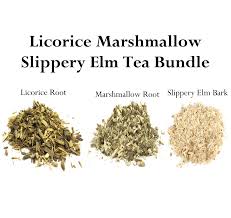
If you’ve ever had acid reflux, you know the misery—burning throat, painful swallowing, ruined meals. Picture John, a retired firefighter, who told me he dreaded spaghetti night with his grandkids because of reflux. Licorice root and slippery elm changed that.
Licorice root helps regulate acid and calm inflammation. Slippery elm coats irritated tissues like a soothing gel, giving your throat and stomach lining a break. Together, they’re one of the most comforting herbal remedies for digestion. Unlike antacids, which sometimes cause rebound acid, these herbs that improve digestion actually support healing over time.
Dandelion Root + Milk Thistle: Behind-the-Scenes Support
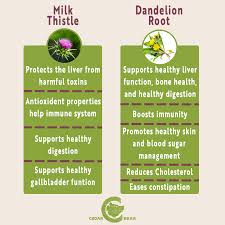
Your liver doesn’t get much credit, but digestion depends on it. It makes bile, which breaks down fats. When bile flow slows, so does digestion.
Dandelion root wakes bile up. Milk thistle helps liver cells regenerate and stay strong. Combined, they’re like backstage crew making sure the spotlight shines where it should.
Taken as herbal supplements for gut health, they’re especially useful after heavy, fatty meals. In Mediterranean cultures, bitter greens (like dandelion leaves) are eaten for the same reason: to keep digestion humming. These herbs are simply the concentrated version of that tradition.
Tea or Capsules? Depends on the Job
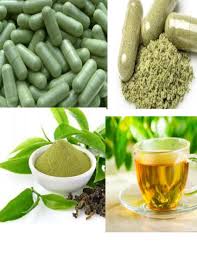
Here’s a practical question: should you drink herbs or swallow them?
-
Herbal teas for digestion are daily maintenance—gentle, hydrating, ritualistic. A cup of chamomile after a stressful day, peppermint after lunch. They fit naturally into life.
-
Herbal supplements for gut health are concentrated support. Capsules with standardized doses, tinctures for quick absorption. They’re for people dealing with chronic discomfort or who need stronger effects.
It’s not about which is better—it’s about timing. Think of teas as brushing your teeth daily, and supplements as going for a professional cleaning when things get rough. Both matter. Both belong.
Herb–Drug Interactions: The Elephant in the Room
Let’s pause. Because while all this sounds amazing, there’s a risk we can’t gloss over. Herb medication interactions can be serious.
-
Ginger may thin blood—bad news if you’re on warfarin.
-
St. John’s Wort can speed up drug metabolism, making antidepressants less effective.
-
Turmeric can amplify blood-sugar-lowering meds, risking hypoglycemia.
This isn’t fear-mongering—it’s reality. That’s why it’s smart to use an herb drug interaction checker or ask your pharmacist. If you’re already juggling prescriptions, you need to know where natural supplements and drug interactions could trip you up.
Think of it like mixing cocktails. Some pairings are delicious; others make you sick. Herbs and meds are no different.
Picking the Right Combo (Think of It Like Matchmaking)
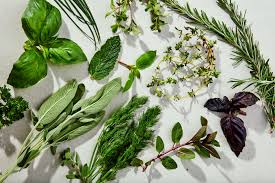
Every digestive issue has its own “personality.” Matching herbs is like choosing the right dance partner.
-
Constant bloating? Fennel + Chamomile are gentle natural remedies for bloating.
-
Heavy after fatty meals? Dandelion + Milk Thistle are dependable herbal supplements for gut health.
-
Acid reflux? Licorice + Slippery Elm are protective herbal remedies for digestion.
-
Gut inflammation? Turmeric + Black Pepper are powerhouse herbs that improve digestion.
It’s not about trying everything at once—it’s about noticing your gut’s patterns and choosing the right herbal “partner” for the problem.
Making Herbs Part of Real Life
So how do you actually do this without turning your kitchen into an apothecary?
-
Brew teas: Peppermint after dinner, chamomile before bed. Easy.
-
Cook with herbs: Add fennel seeds to roasted veggies, turmeric to eggs, ginger to stir-fries.
-
Supplements for bigger needs: When teas aren’t enough, use capsules or tinctures for concentrated support.
-
Keep a gut journal: Write down what you eat, how you feel, which herbs help. Patterns pop up quickly.
-
Check interactions: Always look for herb medication interactions before mixing herbs with prescriptions.
Over time, these small rituals turn into habits. And those habits create real change—less bloating, smoother digestion, more energy.
Wrapping It Up: Your Gut Deserves Better
You know what? Your gut does a lot for you. It breaks down every bite, fuels your cells, supports your immune system, and even talks to your brain. When it’s cranky, life feels harder.
Supporting it with herbal remedies for digestion isn’t about chasing trends—it’s about working with your body, not against it. Ginger and peppermint, fennel and chamomile, turmeric and black pepper—these pairings prove that simple, time-tested herbs that improve digestion can bring profound relief.
Just remember: herbs aren’t magic bullets. Respect them. Stay mindful of natural supplements and drug interactions, use an herb drug interaction checker, and talk to your provider if you’re on meds.
Because sometimes, the real secret to better digestion isn’t in a shiny bottle. Maybe it’s been waiting in your teacup—or your spice rack—all along.
FAQ: Herbal Remedies for Digestion
1. Can I drink peppermint tea every day?
Yes, for most people, daily peppermint tea is safe and soothing. But if you’re on reflux meds or have GERD, consult your doctor first—it can sometimes relax the wrong muscles.
2. Are herbal remedies safe for kids?
Some herbs like chamomile are mild and safe in small amounts, but always check with a pediatrician. Never give strong herbal supplements for gut health without guidance.
3. What’s the safest way to start using herbs?
Start with teas. They’re gentle and give you a feel for how your body reacts. Move to supplements only if needed.
4. Do herbs really work, or is it placebo?
Both tradition and modern science support many herbs. For example, peppermint oil has clinical studies backing its use for IBS, and turmeric has proven anti-inflammatory benefits.
5. Where can I check herb–drug interactions?
Use an herb drug interaction checker on Drugs.com, WebMD, or visit www.evaluatemymeds.com for clear, easy-to-read breakdowns.
External Link Suggestions:
-
NIH: Herbs at a Glance: https://www.nccih.nih.gov/health/herbsataglance?utm_source=chatgpt.com
Internal Link Suggestions:
-
Check your meds and supplements: https://evaluatemymeds.com/
-
Read about safe use of supplements:https://evaluatemymeds.com/index.php/blog/
-
Get pro Get professional guidance:https://evaluatemymeds.com/index.php/contact/








